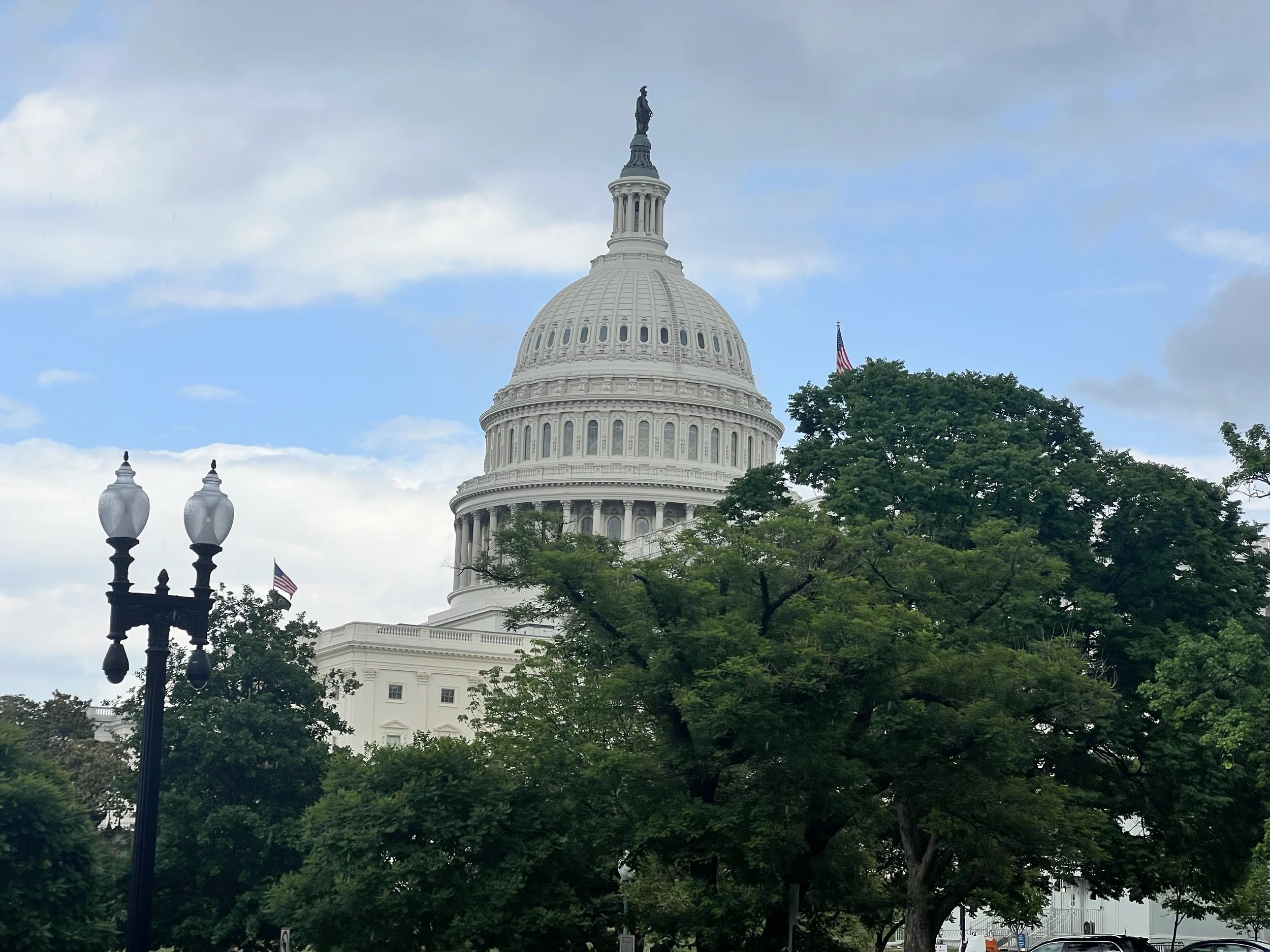Editorial: Indian Country Hit First, and Harshest, Amidst Federal Shutdown
The U.S. Capitol building in Washington, D.C. Stock photo/LRI Native News.
By Darren Thompson
Like climate change, the federal government shutdown affects Indigenous communities in the country first and harsher than other communities. There are several reasons why, including that federally recognized tribes have a political relationship with the federal government that is based on the laws that founded this country. In exchange for land, the federal government made provisions—consider them as promises—to tribes and their citizens in various legal processes such as treaties, executive orders, and legislation. In exchange for land, the federal government created unique programs only available to federally recognized tribes largely in the areas of housing, education, healthcare and law enforcement. When the federal government shuts down, funding for all of those programs also shut down.
Because of this unique status, the federal government has both a trust and treaty responsibility to tribes and their citizens. And since legislation and provisions have been made, tribes and their people have always come last. Multiple times a year, tribal leaders and advocates meet with the federal government to remind congressional leaders and appointees of the federal government of this history and unique status—look at it as free consultation to the federal government of how to best create funding for millions of tribal citizens.
It is insight to why our life expectancy is the lowest out of any ethnic group in the country. It is insight to why we perform the lowest in educational systems out of any ethnic group in the country. It is insight to why our people are incarcerated at higher rates than any other group of people in this country. We have every economic, social, and political statistic that America does not want.
We hear of the “Great Depression" era, and how as much as 25% of the country was unemployed. Today, in many places in Indian Country, 40% of the population is unemployed, and it has been that way for decades. In other words, the "Great Depression” has remained in Indian Country.
The federal government shutdown exacerbates the already existing troubles that have plagued tribal communities since the founding of this country. Tribes throughout the country have had to declare emergencies due to the federal shutdown, because lines for food are longer, workers are going without pay, funding for programs to heat homes are dried up, and law enforcement officers are worked beyond capacity. Monies come from reserves, and require political declarations to access and distribute them to the benefit of the community.
The federal government provides funding to these programs, and more, on an annual basis and changes from administration to administration, largely based on what political party is in the majority in Congress. Some of the most milestone acts of legislation have been passed by both parties, Republican and Democrat, so that is not to disparage the current, or any, administration. And when funding is eliminated from the federal government, it is a violation of the promises made between our governments and the excuse is that Indians don’t pay taxes, which is an entirely different discussion. To be frank, Indians, and Indian Tribes, have paid the largest tax in American history—the land and their people.
The shutdown has halted funding from the Bureau of Indian Affairs, and worsens the already difficult conditions that plague many tribal, or Indigenous, communities. Many communities don't have running water or electricity, which brings an entire slew of problems the rest of the country does not have experience with. The ceding of land largely eliminated access to traditional foods that many have survived off for many generations, and large-spread elimination of a food source such as the buffalo also brings entirely new challenges to people who have relied on those food sources for generations.
So, for now, tribes have declared emergencies, which is a political process among tribes just as other governments, to tap into their own resources to feed the most needy. However, these declarations won’t last for long say many tribal leaders. As the shutdown continues, tribes and their people continue to feel the infighting and strive for consensus, as our ancestors have.
Darren Thompson is the Managing Editor of Last Real Indians Native News Desk and the Director of Media Relations for the Sacred Defense Fund, an Indigenous-led nonprofit organization based in Santa Fe, New Mexico. He’s an award winning multimedia journalist enrolled at Lac du Flambeau Band of Lake Superior Chippewa, where he grew up. He can be reached at darren@sacreddefense.org.

